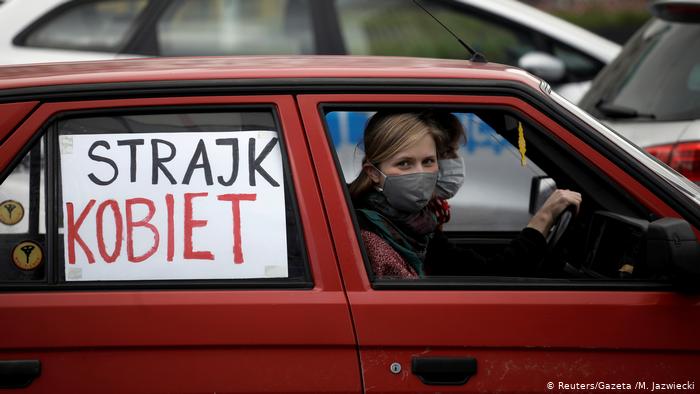Poland’s abortion laws are some of the strictest in the EU, yet its parliament is considering tightening them further. Now, coronavirus restrictions have forced opponents to get creative with their protests.
Honking cars block the half empty streets of Warsaw. Red lightning bolts — the symbol of a new round of protests — emblazon their windshields, accompanied by signs calling for the rejection of new abortion restrictions. Masked passengers wave flags with phrases like that of the popular hashtag campaign #pieklokobiet (Women’s Hell).
Those who are forced to line up in front of shops due to coronavirus social distancing measures carry placards with slogans demanding politicians “fight the virus, not women.” Some carry umbrellas, which have been another symbol of women’s protests in Poland over the past several years. In this way, many liberals in Poland have been able to voice their displeasure with moves to further tighten the country’s already strict abortion laws
Strict measures
Poland’s abortion laws, passed in 1993, are among the strictest in the European Union (EU). The laws dictate that abortion is only allowed — even in cases of rape or incest — if the mother’s life is in danger or a fetus shows severe defects, and that only until the 12th week of pregnancy. Doctors who perform abortions theoretically face anywhere between six months and eight years in prison if they are found to have broken the law.










